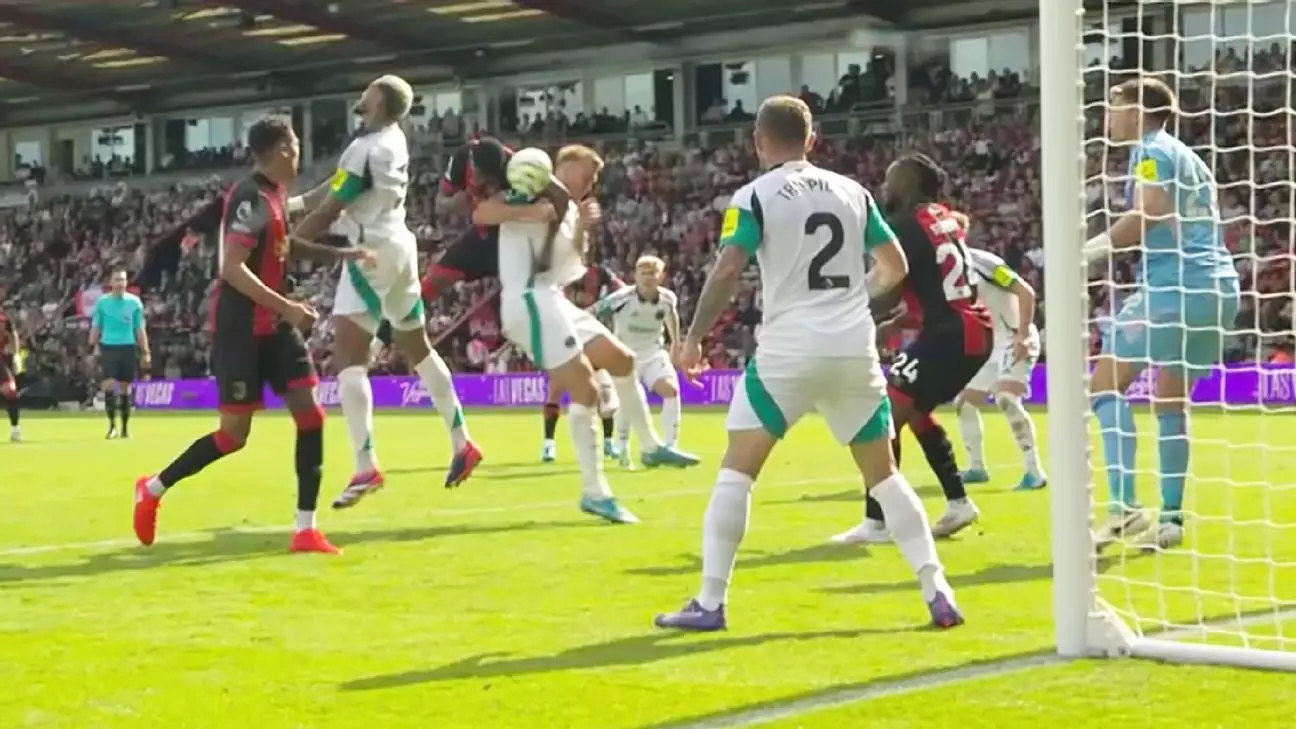After AFC Bournemouth scored what seemed to be a 92nd-minute winner against Newcastle United, the Video Assistant Referee (VAR) made a crucial decision to disallow the goal. The referee had initially given the goal, but after reviewing the footage, the VAR ruled it out for a possible handball by Dango Ouattara. The lack of definitive proof regarding the alleged handball raised questions about the VAR’s decision-making process.
The complexity of determining handball offenses was highlighted in this incident. The evolution of handball rules over the years, especially concerning the starting point of the arm for handball purposes, has added confusion to the interpretation of such incidents. The vague language used by the International Football Association Board (IFAB) regarding handball definitions has made it challenging for referees to make consistent and accurate decisions in such crucial moments of the game.
Another contentious decision involved Joelinton’s challenge on the Bournemouth goalkeeper during a fast break. While the referee opted to show a yellow card for unsporting behavior, some argued that the nature of the challenge warranted a red card for serious foul play. The inconsistency in enforcing rules related to dangerous actions on the field has led to further debates on the effectiveness of VAR in addressing such incidents.
The incidents involving Manchester City and Ipswich Town shed light on the perceived bias towards bigger clubs in receiving favorable VAR decisions. The contrast in penalty calls for both teams raised concerns about the fairness and impartiality of VAR in crucial moments of the game. The notion that larger clubs benefit from VAR decisions at the expense of smaller teams has fueled discussions about the transparency and accountability of the system.
The case of Wout Faes’ disallowed goal for Leicester City due to an offside call highlighted the importance of clear and objective offside decisions. The VAR’s role in ensuring accuracy in determining offside positions, especially when goalkeeper vision is obstructed, is crucial in maintaining the integrity of the game. The use of technology to review such close calls underscores the need for consistency and precision in officiating decisions.
The incident involving Manchester United’s disallowed goal due to an offside ruling demonstrated the impact of factual offside decisions on the outcome of matches. Despite the frustration of having a goal overturned, the adherence to strict offside rules is necessary to uphold the principles of fair play and sportsmanship. The VAR’s role in enforcing factual offside decisions remains a point of contention among players, coaches, and fans alike.
The controversies surrounding VAR decisions in the Premier League continue to raise questions about the consistency, accuracy, and fairness of the system. From handball interpretations to offside rulings, the intricacies of such technical aspects impact the outcome of matches and the overall perception of the sport. As debates on VAR’s effectiveness persist, the need for clarity, transparency, and accountability in decision-making processes becomes paramount in ensuring the integrity of football competitions.

